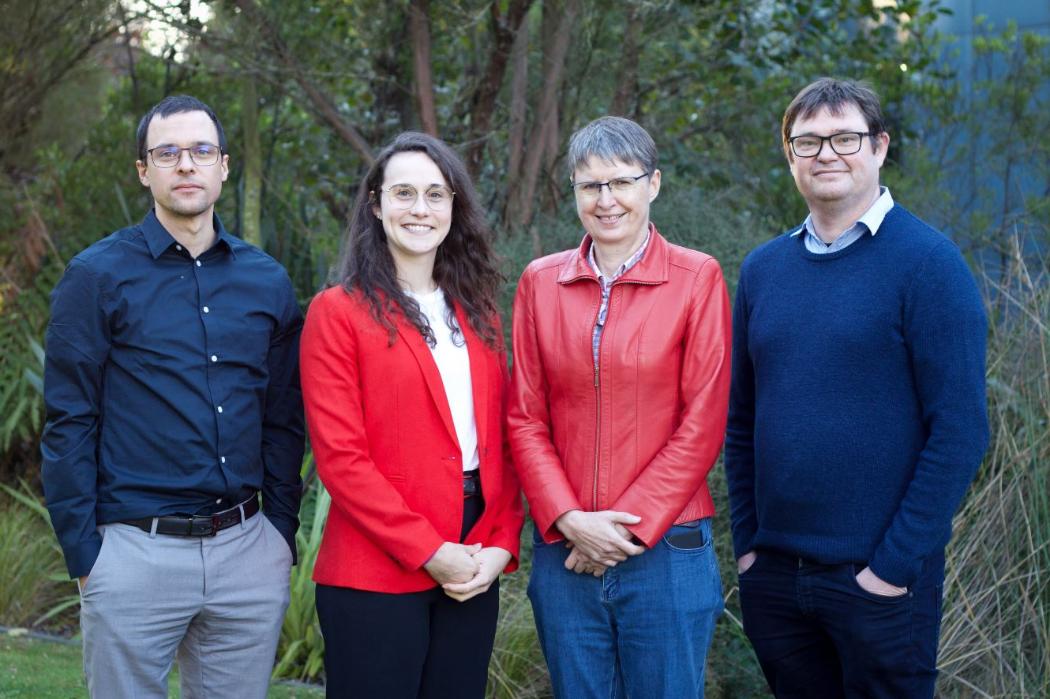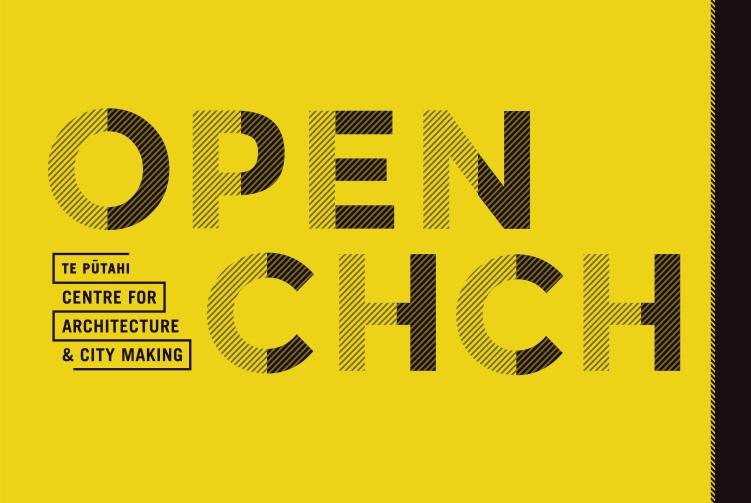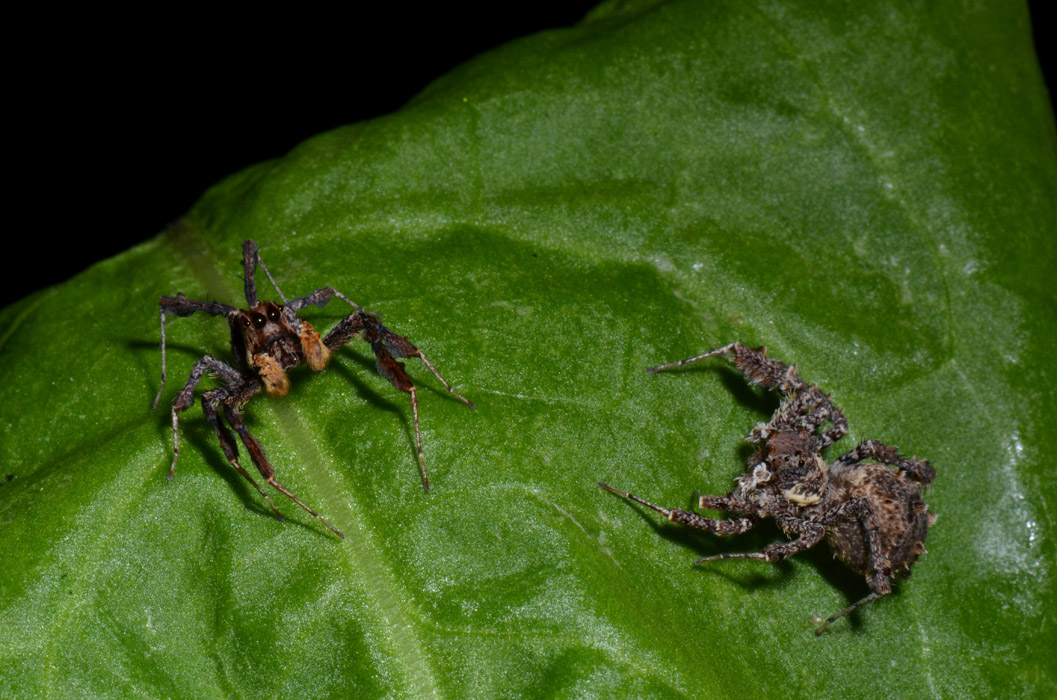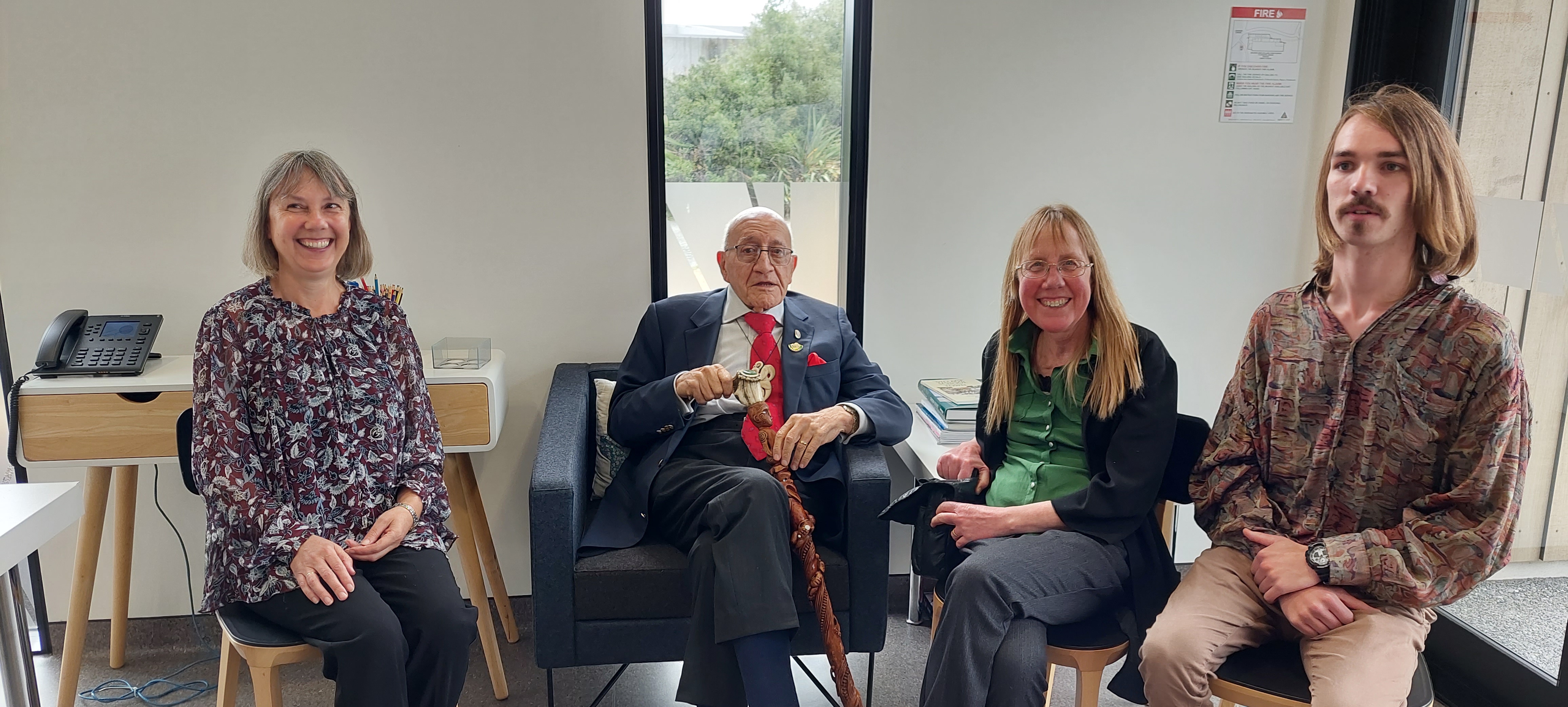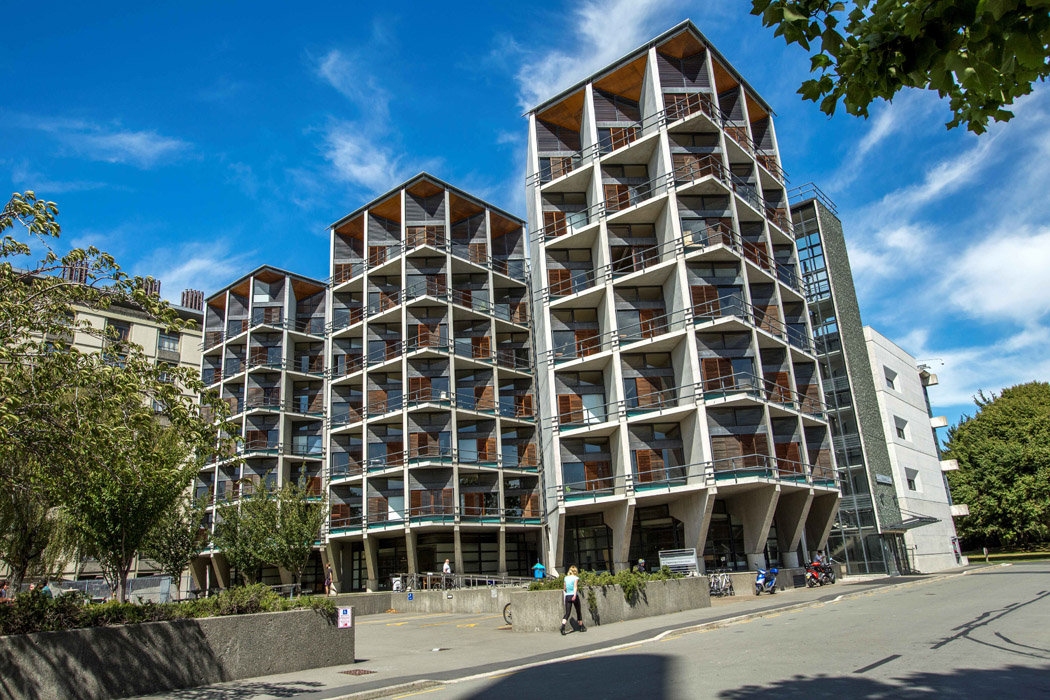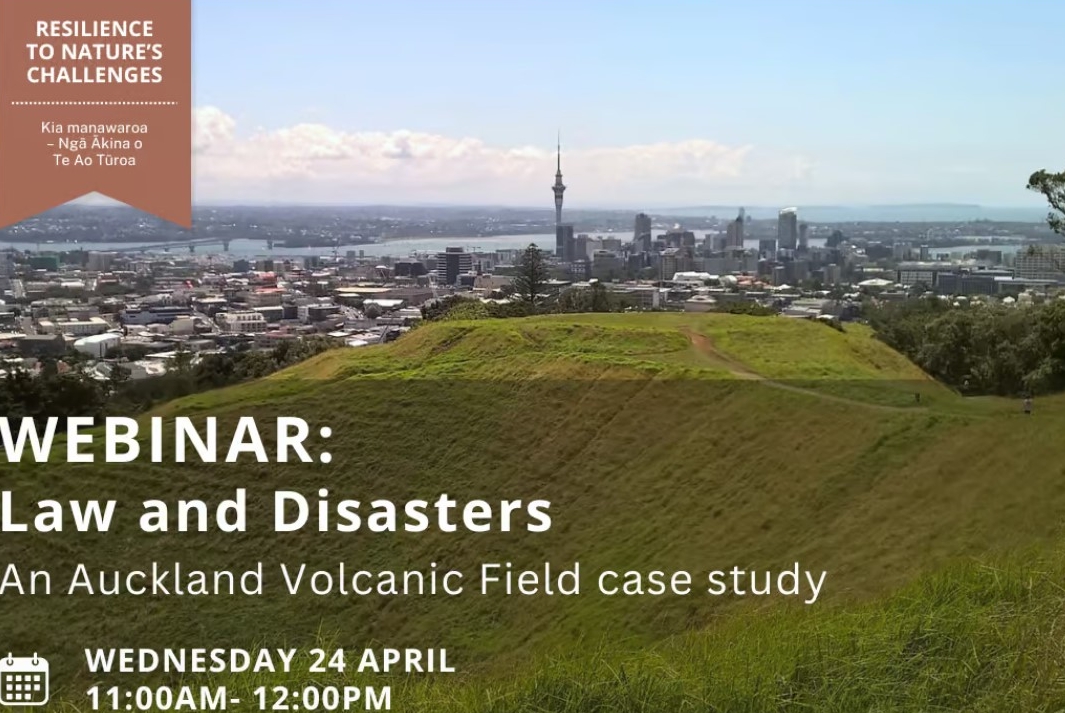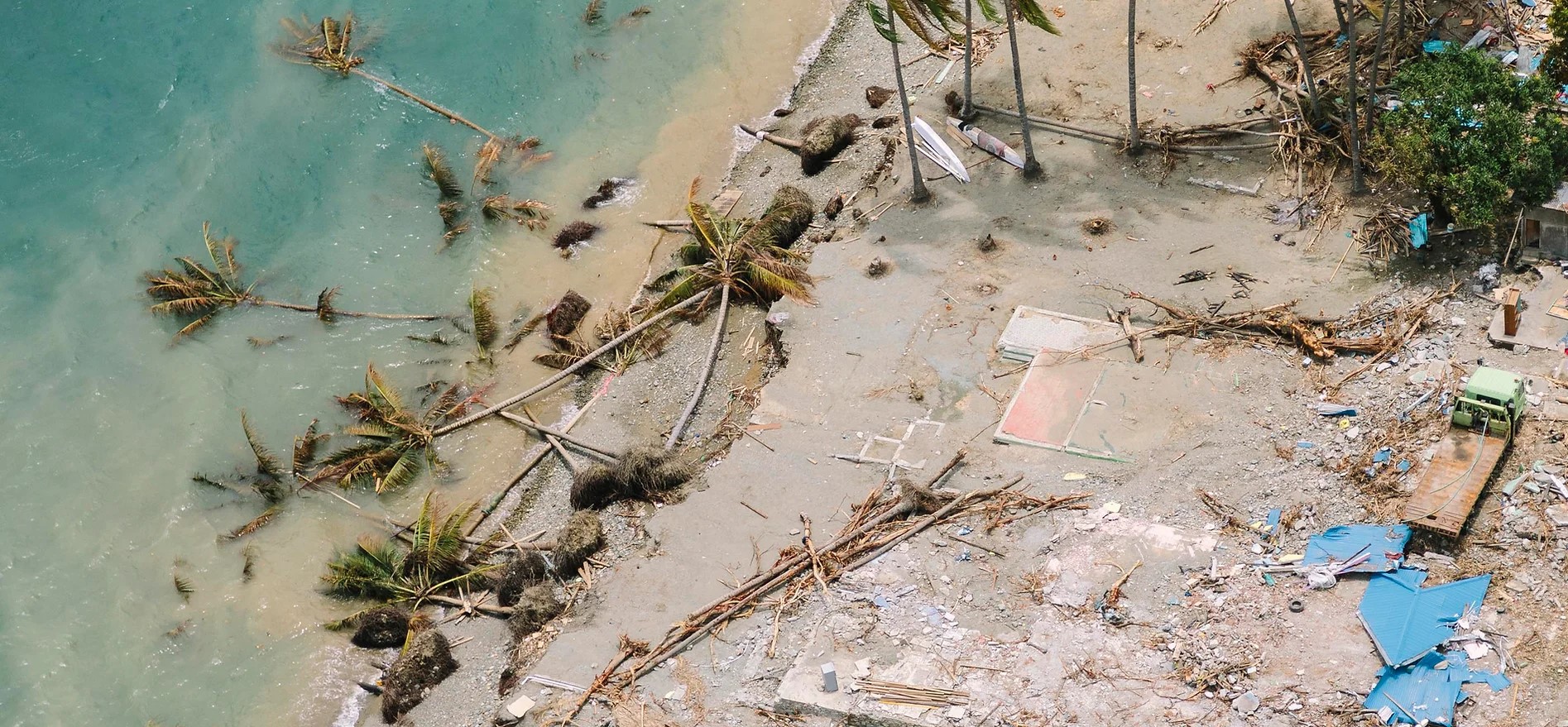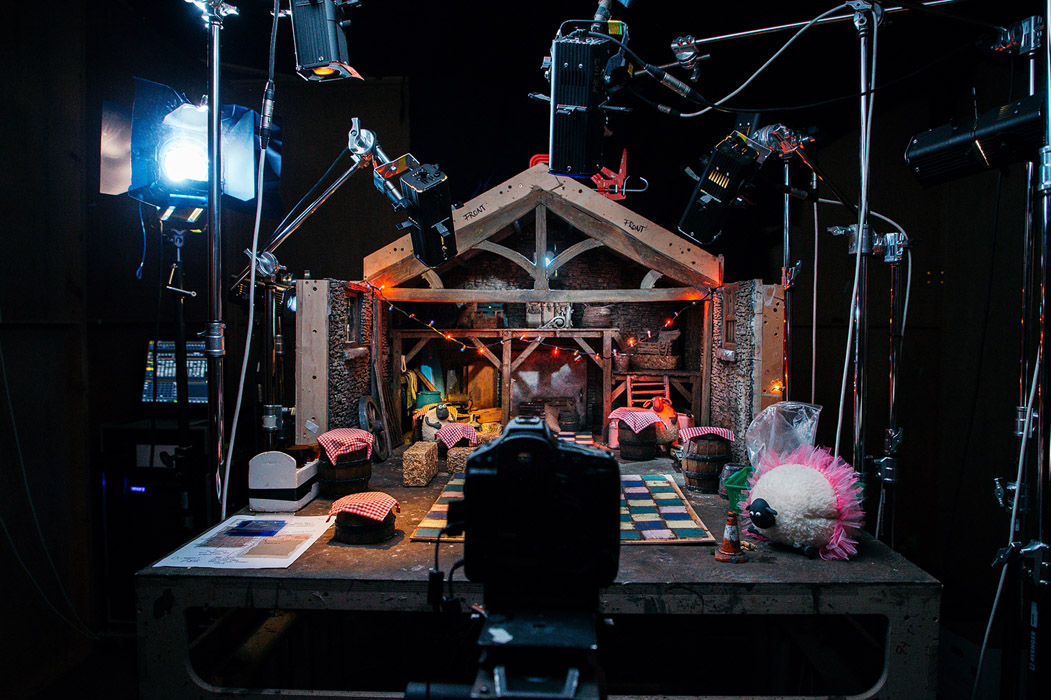University of Canterbury (UC) and University of Otago (UoO) researchers are collaborating with community-led initiatives to ensure positive gains for tamariki and rangatahi. Pictured from left; Dr Jannik Hass (UC), Dr Rebecca Peer (UC), Professor Sally Brooker (UoO), and Professor Aaron Marshall (UC).
Researchers from the University of Canterbury (UC) and University of Otago are leading projects on green hydrogen integration, enabling low-cost green hydrogen production and hydrogen storage, and eager to share this knowledge with the next generation. Each of the three projects were awarded $2 million in funding by the MBIE Catalyst fund, New Zealand-Germany Green Hydrogen Research Programme.
The researchers are working in collaboration with local Ōtautahi Christchurch company, Fabrum – a world-leading end-to-end technology solutions provider in the liquid hydrogen market. The suite of products includes membrane-free electrolysers, cryogenic storage vessels, high-speed dispensers and liquefier solutions.
Together the teams will strive to embed the necessary skills and learning across the pathways that will enhance the ability for learners to successfully engage with all the aspects of renewable energy, including hydrogen in its many facets.
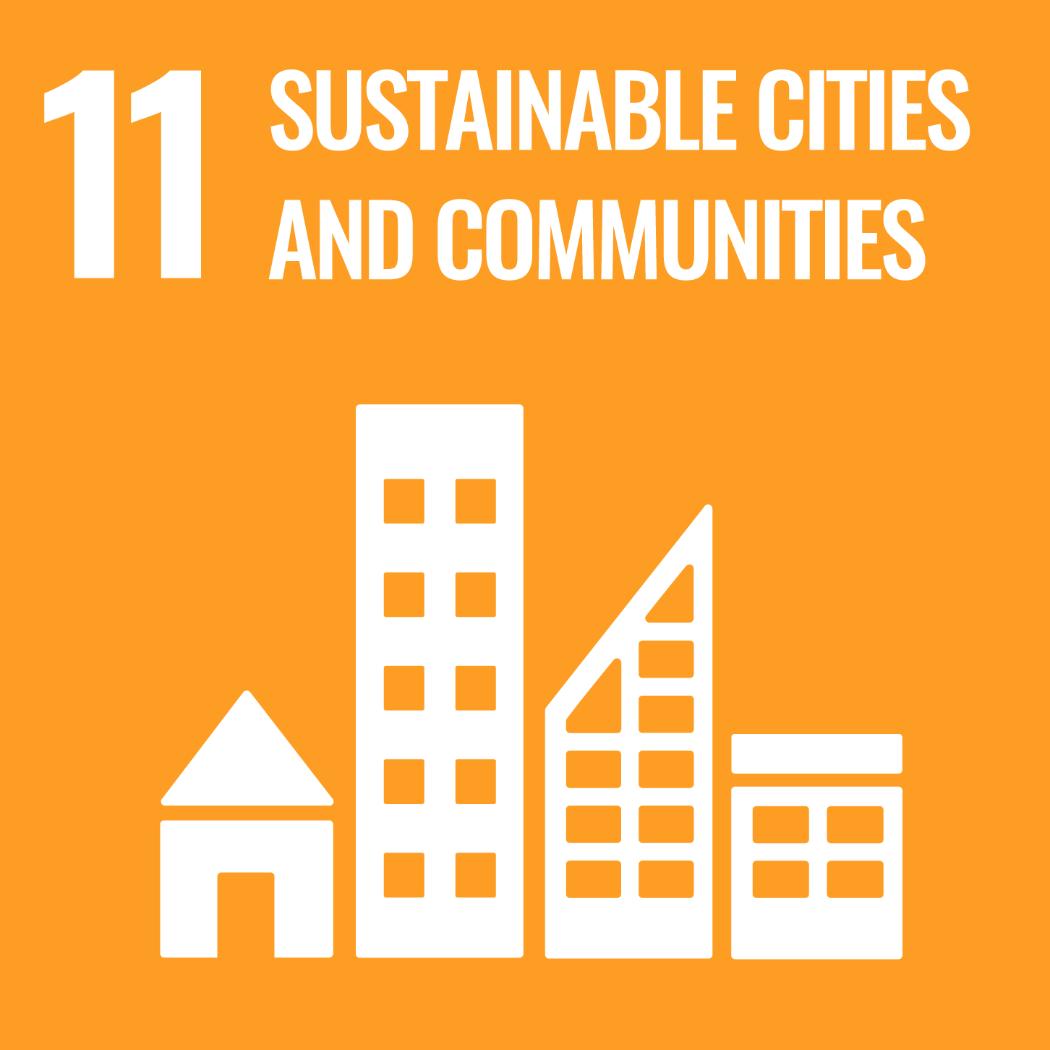 Sustainable Development Goal (SDG) 11 - Sustainable Cities and Communities
Sustainable Development Goal (SDG) 11 - Sustainable Cities and Communities
UC Civil Systems Engineering Department lecturer, Dr Rebecca Peer, is co-leading the research into green hydrogen integration and says the team is committed to ensuring their mahi encompasses rangatiratanga (self-determination) for Māori. “We aim to embed Māori needs and wants across our research so that we can bring solutions-based discoveries which will positively impact equity for Māori.”
Leading research to enable low-cost green hydrogen production, UC Chemical and Process Engineering Professor Aaron Marshall, says the team is using the projects as a platform to engage with rangatahi by developing STEM activities to introduce green hydrogen.
“We’re hoping to inspire young people to see we could create unique solutions for energy applications in Aotearoa New Zealand. We don’t necessarily need to be a buyer of technology because we can develop it here and I believe that’s important for younger people to know that.”
Otago Professor Sally Brooker who is leading research into safe cost-effective hydrogen storage materials says this engagement is important to help students see how they can have a positive impact. “From what I’ve seen, high school students care less about making money and more about making a difference. This is an opportunity to show them how they can make a positive difference and improve things through technology.”
Green hydrogen is produced from renewable energy sources and one of the few technologies able to offer long-term energy storage, green fertilisers and green steel, so it’s a hot topic as Aotearoa strives to become a net-zero carbon economy by 2050.
Funding through the MBIE’s Catalyst: Strategic New Zealand-Germany Green Hydrogen Research Partnership strategic funding scheme was announced in August this year. Two of the projects are led by UC academics; Civil Systems Engineering Researchers Dr Rebecca Peer and Dr Jannik Haas, and Chemical and Process Engineering Professor Aaron Marshall (Principal Investigator, MacDiarmid Institute). The third project to receive this funding is led by Otago University Chemistry Professor Sally Brooker, and she also co-leads, with Dr Paul Jerabek (Helmholtz Zentrum Hereon, Hamburg), additional MBIE and BMBF grants to establish a German-NZ green hydrogen centre at the University of Otago.
Fabrum have produced and donated teaching equipment to demonstrate hydrogen generation in the lab. The equipment will be used to support MacDiarmid Institute’s Discovery Camp, a programme for Māori and Pacific students in their final years of high school, and UC’s WieCAN (Women in engineering) outreach programme.
Fabrum Managing Director Christopher Boyle says they are striving to do more with less for longer. “Hydrogen is an important part of decarbonising the ecosystem and building a cleaner and greener planet for the generations to come. Many of our team are University of Canterbury graduates and we are proud to support UC and Otago researchers. These projects will have resounding benefits within the community.”
The University of Otago also has extensive school outreach programmes, including the Department of Chemistry’s Outreach Group, the Science Wānanga Programme, and the travelling Lab in a Box initiative, along with the German-NZ Green Hydrogen Centre, all of which will benefit from these resources. It is hoped the activity can engage rangatahi across Ngāi Tahu rohe, including targeted activities with Murihiku Regeneration in the southern takiwa.
Murihiku Regeneration is a collaboration between four Ngāi Tahu Papatipu Rūnanga on behalf of Murihiku hapū to reinstate the rangatiratanga of the four distinct Southland rūnanga and ensure a successful future for the Murihiku whānui.
Terry Nicholas, Manager of Hokonui Rūnanga and Portfolio Director for Murihiku Regeneration, works to protect and enhance spiritual, cultural, organisational, educational and economic aspirations of Hokonui rūnanga and Murihiku hapū.
“Building a better future for our people, and especially our children’s children, is the essence of what we value most across all of the iwi: Mō tātou, ā, mō kā uri ā muri ake nei – for us and our children after us,” he says.
